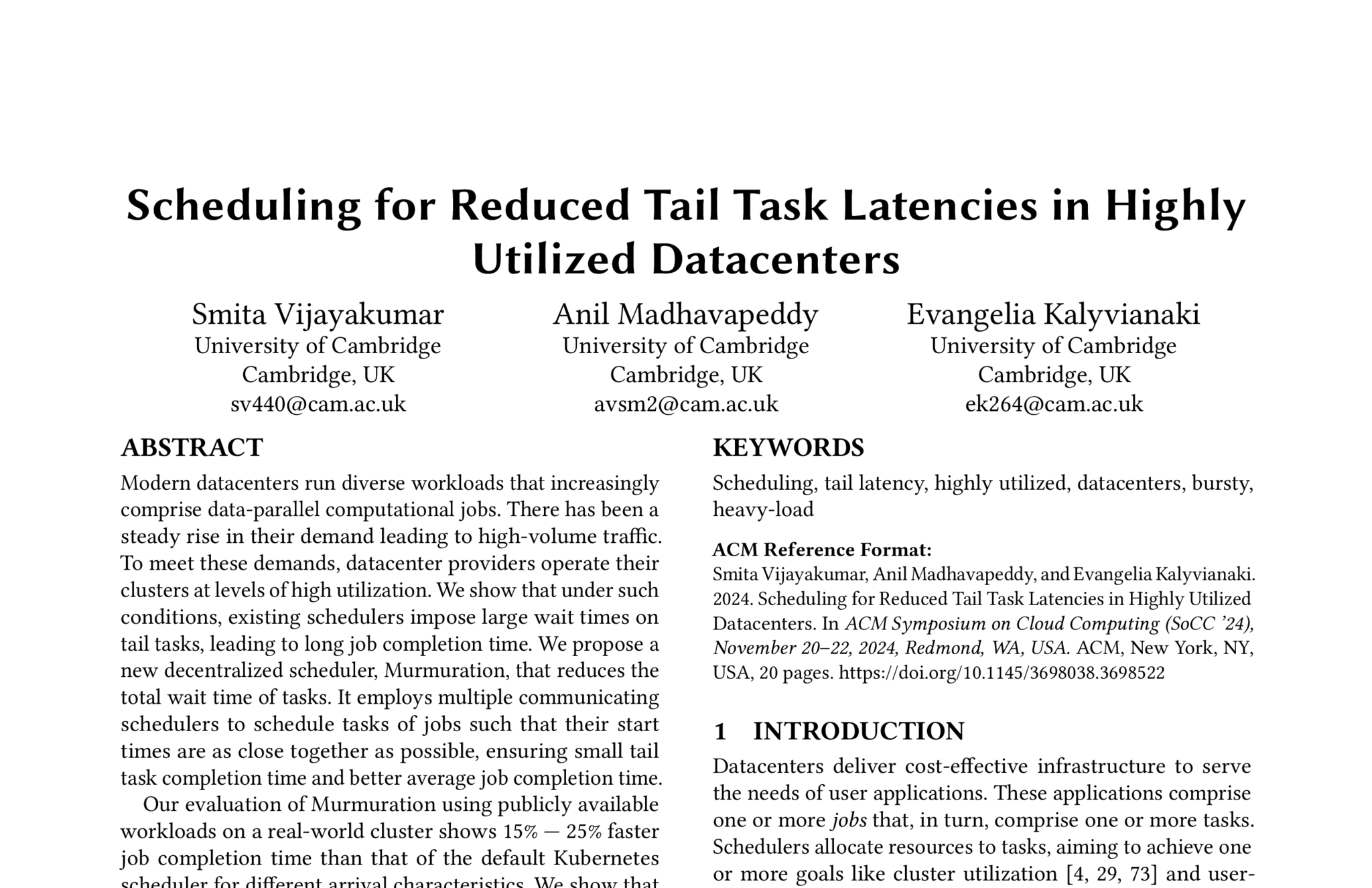Scheduling for Reduced Tail Task Latencies in Highly Utilized Datacenters
. In Proceedings of the 2024 ACM Symposium on Cloud Computing. .
Abstract
Modern datacenters run diverse workloads that increasingly comprise data-parallel computational jobs. There has been a steady rise in their demand leading to high-volume traffic. To meet these demands, datacenter providers operate their clusters at levels of high utilization. We show that under such conditions, existing schedulers impose large wait times on tail tasks, leading to long job completion time.
We propose a new decentralized scheduler, Murmuration, that reduces the total wait time of tasks. It employs multiple communicating schedulers to schedule tasks of jobs such that their start times are as close together as possible, ensuring small tail task completion time and better average job completion time.
Our evaluation of Murmuration using publicly available workloads on a real-world cluster shows 15%--25% faster job completion time than that of the default Kubernetes scheduler for different arrival characteristics. We show that Murmuration scales to incoming workloads by scheduling more than a million tasks in a matter of minutes. We further enhance the design of Murmuration by incorporate queue re- ordering techniques to order the scheduling and execution of jobs and tasks. Simulations evaluated on two industry workloads show that with queue re-ordering, Murmuration outperforms other schedulers with a 100×better median job completion time than that of current schedulers.
